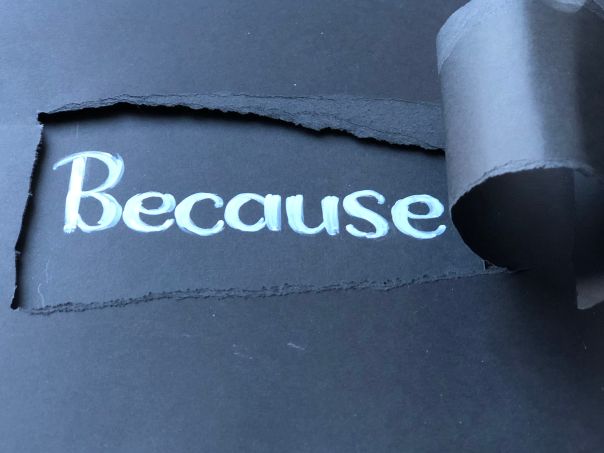We use “because” in many occasions, but are we correct all the time? What is the difference between because and because of? Is there any difference between these two expressions?
Let’s find out in this article.
Summary Table
| Because | Because Of |
| Why sth happens or is happening | Why sth happens or will happen |
| To explain immediate cause | To explain a cause after the fact |
| Connecting word | Correlative |
Definitions
We use the word because to tell why something happened or is happening, even when we just state that it was the reason an event occurred or will occur. For example, if you are late for school because your car broke down, you’re not really explaining why you have been late. You just said that it is the reason you are late. For example in a sentence: “Because I was late, I missed the train.” Or “The customer called because they were not satisfied with their service.”
However, we use the word because of to explain why something happened or will happen. For example, if your car broke down because of a flat tire, you are telling the reader why it happened or will happen. Example of a sentence is: “The loss of the money this time was because of your carelessness.
” Or “Your new job is because of your hard work.”
Because vs Because Of
The word because is used to explain a reason or cause, while the word because of is used to explain a reason or cause after a situation has taken place. For example, if your boss asks you to come and work on Saturday because it’s a holiday, then this is because of the holiday.
When you want to say something is different than it was before, use the word because, not because of. Strictly speaking, these two words are interchangeable in most cases. However, because is a more common choice in formal writing and speech.
You can tell when to use because of and when to use because by looking at the verb in the sentence. If the verb is in active voice (like “run”), then use because of; if it is in passive voice (like “broken down”), use because.
The difference between because and because of is that “because” is a cause, while “because of” is an effect.
“Because” is a connecting word, while “because of” is a correlative: the former connects two clauses while the latter links two sentences.
The difference between because and because of is a lot simpler than you think. The difference lies in the fact that because is used when someone is being blamed for something but because of is used when someone is being credited for something.
When you are denying responsibility for a situation, you use because, but when you are accepting responsibility for something that someone else has done, you can use because of.






